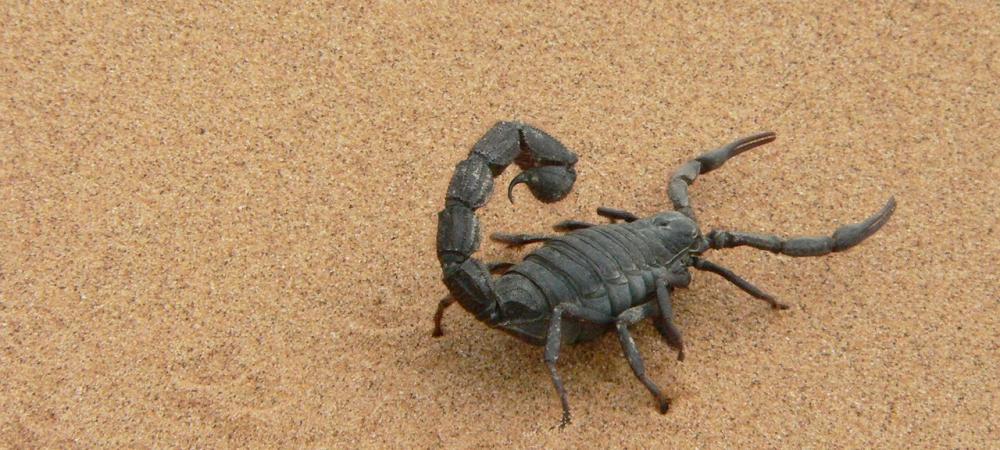Texas, with its vast and diverse landscapes, is home to a wide variety of flora and fauna, including several species of scorpions. The mention of these arachnids might evoke fear and trepidation, but understanding their habits and identifying the types found in Central Texas can alleviate some concerns. In this blog, we will shine a light on the common scorpion species in Dallas, TX, and offer insights into their characteristics, behavior, and safety precautions for coexistence.
How To Identify A Scoprion
Scorpion identification involves examining their unique features such as segmented bodies, pincers, a segmented tail with a stinger, four pairs of legs, and their coloration to determine the species. They can be found in a variety of habitats, including deserts, rocky slopes, grasslands, forests, rocky areas, caves, and urban environments.
The Most Common Species of Scorpions to Find in Dallas, TX
Dallas and its surrounding areas are home to a few species of scorpions, with the most commonly encountered being the striped bark scorpion, the Texas cave scorpion, and the giant hairy scorpion (also known as the desert hairy scorpion).
The Striped Bark Scorpion (Centruroides vittatus)
Image


- Identification: The striped bark scorpion is relatively small, ranging from 1.5 to 3 inches in length. It can be identified by two dark stripes running down its yellow-brownish body and its distinctive slender, curved tail, which is equipped with a venomous stinger.
- Habitat: These scorpions prefer warm, dry environments and are often found hiding under rocks, logs, or debris, seeking shelter from the scorching Texas sun.
- Behavior: Striped bark scorpions are nocturnal creatures, emerging at night to hunt for insects, their primary food source.
- Venom: While their venom is not typically lethal to humans, it can cause painful stings and allergic reactions in some individuals.
The Texas Cave Scorpion (Pseudouroctonus reddelli)
Image


- Identification: Slightly larger than the striped bark scorpion, the Texas cave scorpion ranges from 1.5 to 3.5 inches. It has a darker coloration, with a reddish-brown body and pale yellow legs.
- Habitat: As the name suggests, these scorpions prefer living in cave systems and rocky areas, but they can occasionally be found in dark and damp locations around homes.
- Behavior: Texas cave scorpions are nocturnal and primarily feed on small insects and arthropods.
- Venom: Like the striped bark scorpion, their venom is generally not life-threatening, but their stings can be painful.
The Giant Hairy Scorpion (Hadrurus arizonensis)
Image


- Identification: The Giant Hairy Scorpion (Hadrurus arizonensis) can be identified by its large size, reaching up to 6 inches in length, and its dark brown or black coloration. It has a hairy appearance, with dense hairs covering its body and pedipalps (pincers).
- Habitat: These scorpions prefer desert environments with loose, sandy soils, and are often found in west Texas.
- Behavior: Giant Hairy Scorpions are skilled burrowers, constructing extensive underground tunnels to evade the scorching desert heat.
- Venom: While their venom can cause discomfort, especially to individuals with allergies, they are not considered dangerous to healthy adults.
Tips for Identification of Scorpions and Safety
While encountering scorpions in and around Dallas is relatively common, it is essential to practice caution to avoid unpleasant encounters:
- Use Flashlights at Night: Scorpions are nocturnal, so when walking outside at night, especially in rocky or wooded areas, use a flashlight to spot them and avoid stepping on one.
- Check Shoes and Clothes: Before putting on shoes or clothing left outside, give them a gentle shake to ensure there are no scorpions hiding inside.
- Secure Entry Points: Seal cracks and crevices around doors, windows, and other potential entry points to prevent scorpions from entering your home.
- Wear Protective Gear: When gardening or working outdoors, consider wearing gloves to protect your hands from accidental stings.
- Educate Children: Teach children to avoid touching unfamiliar creatures and to report any scorpion sightings to an adult.
Scorpion Removal and Pest Control
In case of a scorpion infestation in your home or property, it’s best to contact a professional pest control service with experience in dealing with scorpions. Attempting to remove them yourself may increase the risk of stings and could prove ineffective in the long run.
If you live in the Dallas Fort Worth area, give us a call! Our team of experienced scorpion exterminators is here to help you identify and safely get rid of scorpions in Texas.
FAQ About Common Species of Scorpion in Texas
Here are some of the most common questions our experienced exterminators receive about these dangerous pests.

